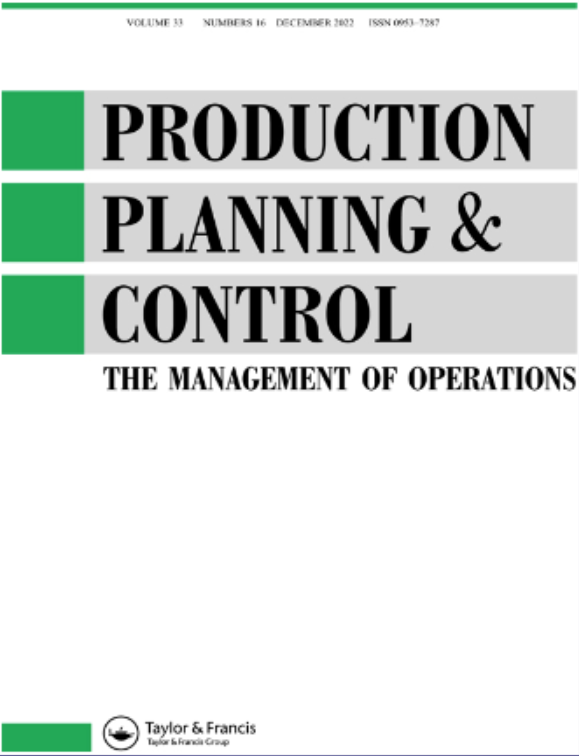On the integration of card-allocation and dispatching decisions in POLCA systems: an assessment by simulation
IF 5.4
3区 管理学
Q1 ENGINEERING, INDUSTRIAL
引用次数: 1
Abstract
Abstract POLCA is an important card-based control system for low volume, high variety production contexts. A job can only be produced at an upstream station if it has acquired a POLCA card that has returned from its downstream station. A common assumption in the POLCA literature is that cards are allocated to jobs as soon as they return to the upstream station. This dissects the queue in front of a station into jobs that have a card (and can be produced) and those that do not have a card (and cannot be produced). This artificially and prematurely constrains the dispatching decision, i.e. the decision concerning which job to produce next at a station. In response, this paper proposes integrating the card-allocation and dispatching decisions such that the allocation of POLCA cards to jobs is postponed until the dispatching decision is made. Simulation results demonstrate that this integrated approach does not improve performance under simple ERD dispatching, as is commonly applied in the POLCA literature. But when a more powerful rule is applied, percentage tardy and mean tardiness performance improve by more than 75% and 50%, respectively, for an integrated decision. Most importantly, results suggest that in production environments like the one considered in this study, the integrated approach dispenses with the use of POLCA altogether if a suitable priority rule is used.POLCA系统配卡与调度决策的整合:模拟评估
POLCA是小批量、多品种生产环境下重要的基于卡片的控制系统。作业只能在上游站生成,如果它获得了从下游站返回的POLCA卡。POLCA文献中的一个常见假设是,一旦作业返回上游工作站,卡就被分配给作业。这将车站前的队列划分为有卡(并且可以生产)和没有卡(并且不能生产)的作业。这人为地和过早地限制了调度决策,即关于在一个车站下一个生产哪个工作的决策。为此,本文提出将配卡决策与调度决策相结合,将POLCA卡的分配推迟到调度决策完成后再分配给作业。仿真结果表明,在简单的ERD调度下,这种集成方法并没有提高性能,正如POLCA文献中通常应用的那样。但是,当应用更强大的规则时,对于集成决策,延迟百分比和平均延迟性能分别提高了75%和50%以上。最重要的是,结果表明,在像本研究中考虑的那样的生产环境中,如果使用合适的优先级规则,则集成方法完全不必使用POLCA。
本文章由计算机程序翻译,如有差异,请以英文原文为准。
求助全文
约1分钟内获得全文
求助全文
来源期刊

Production Planning & Control
管理科学-工程:工业
CiteScore
19.30
自引率
9.60%
发文量
72
审稿时长
6-12 weeks
期刊介绍:
Production Planning & Control is an international journal that focuses on research papers concerning operations management across industries. It emphasizes research originating from industrial needs that can provide guidance to managers and future researchers. Papers accepted by "Production Planning & Control" should address emerging industrial needs, clearly outlining the nature of the industrial problem. Any suitable research methods may be employed, and each paper should justify the method used. Case studies illustrating international significance are encouraged. Authors are encouraged to relate their work to existing knowledge in the field, particularly regarding its implications for management practice and future research agendas.
 求助内容:
求助内容: 应助结果提醒方式:
应助结果提醒方式:


